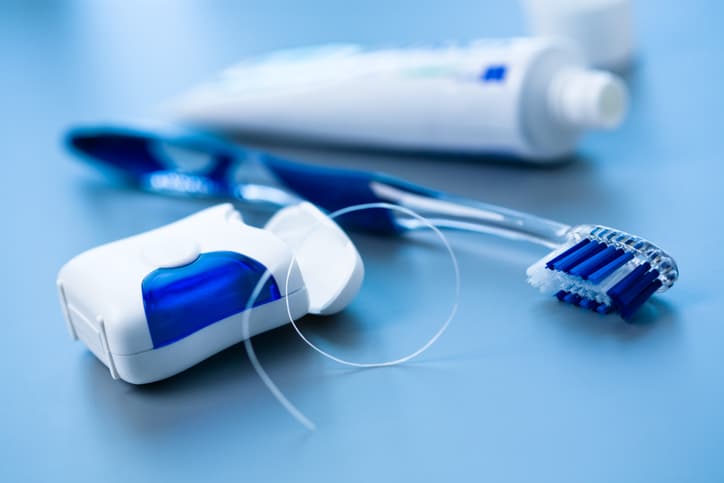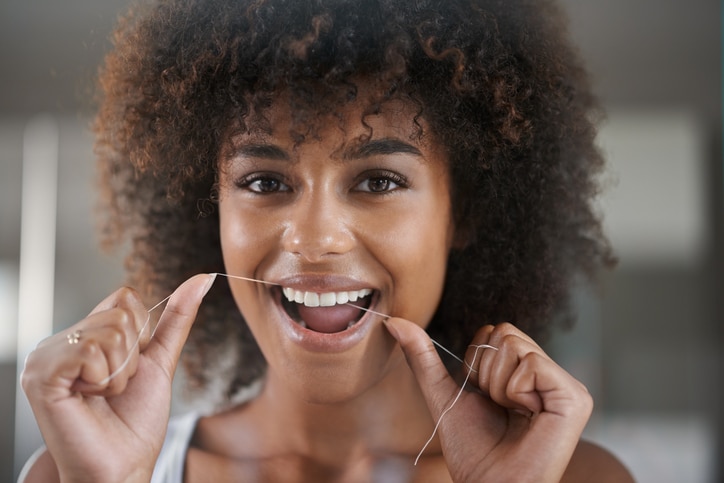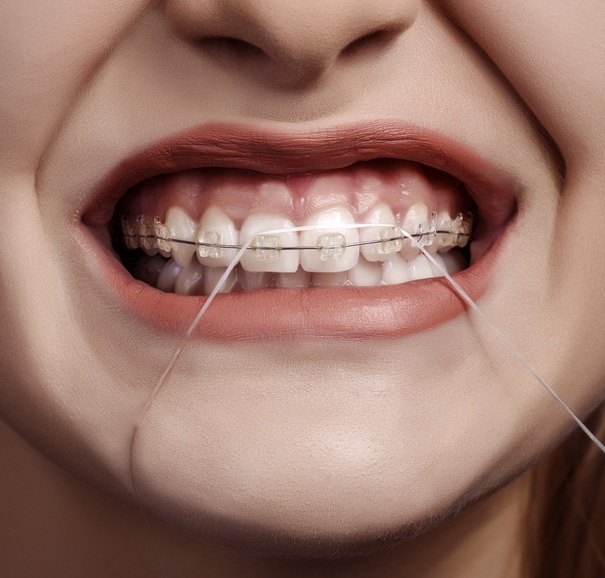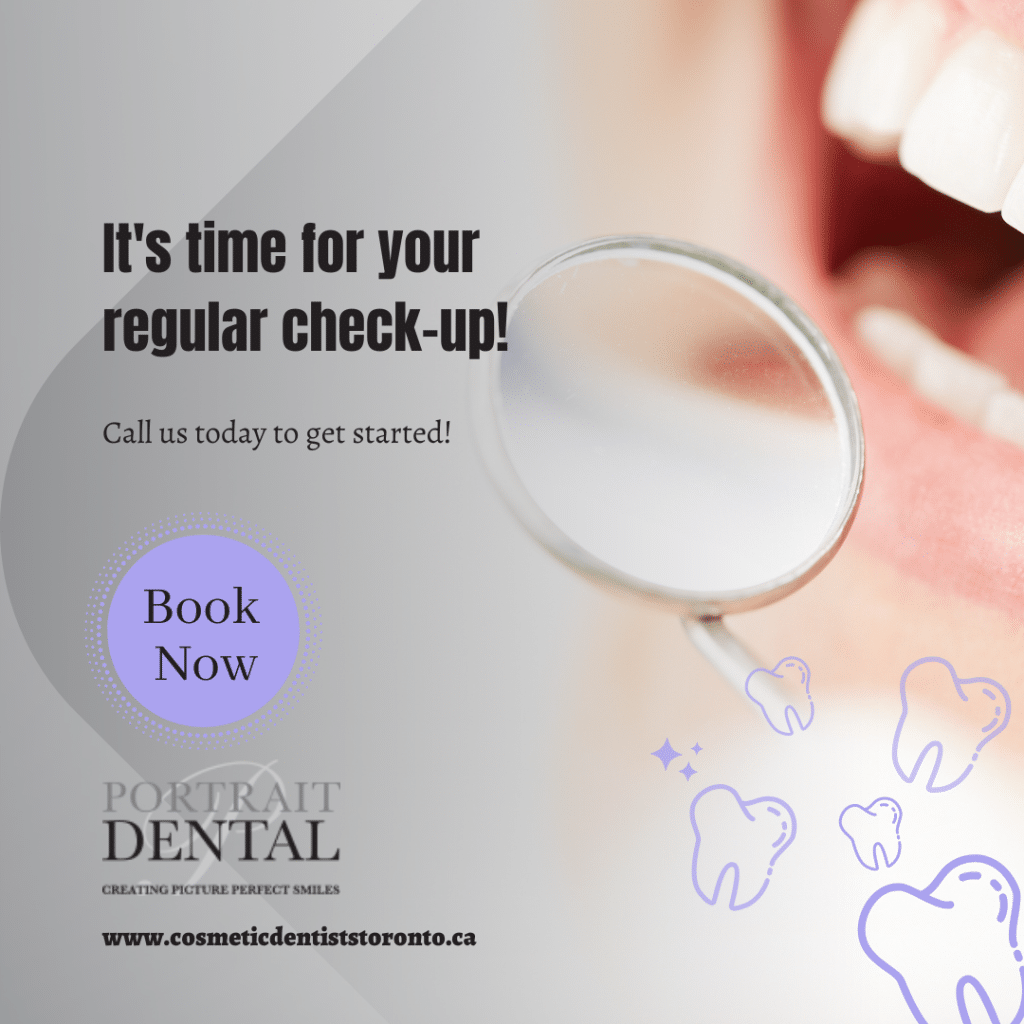You’ve heard it everywhere: from parents to your dentist, to friends, and even advertisements. Flossing is an essential part of oral hygiene. Yet, many people skip it due to misconceptions or lack of knowledge.
At Portrait Dental, we help teach our clients important hygiene habits for oral health. So, we will teach you the proper flossing technique and tools to use to help you maintain good oral health. Flossing is crucial for preventing gum disease and tooth decay, so let’s get started!
Benefits of Flossing
Before we start, let’s explore why flossing in addition to brushing and mouthwash is the best practice for oral healthcare. Flossing is essential for good oral health because it helps remove plaque and food particles from areas a toothbrush can’t reach. As you probably know, when plaque is not removed, it can harden into tartar, leading to gum disease and tooth decay. Also, it helps prevent bad breath, making it an excellent addition to your oral hygiene routine.
But how can you choose the right floss for your health goals? Keep reading!
Choosing the Right Floss
There are many types of floss available. Here’s a quick list of traditional string floss:
- Waxed
- Unwaxed
- Flavoured
- Dental tape.
Waxed floss is excellent for tight spaces between teeth, while unwaxed floss can be better for wider spaces. A flavoured floss is a great option for those who don’t like the taste of traditional floss, or for kids. Dental tape is a broader, flat floss that may be easier to handle for some people, like seniors or those with mobility issues.
Water flossing is also an alternative to the traditional method. Water flossers use a stream of water to remove plaque and food particles from teeth and gums. They are easy to use and might be a better option for people with braces or other dental work. While these were quite expensive in previous years, they’re now rather inexpensive, considering their benefits.
When to Floss
Making a habit of flossing is important. As such, it should be done at least once daily, preferably before or after brushing. Flossing before brushing can help remove any food particles or plaque, allowing your toothbrush to clean more effectively. Cleaning after brushing helps remove any remaining debris that your toothbrush may have missed. Incorporating flossing into your daily oral hygiene routine is essential for maintaining good oral health.
If you have more questions about the basics of flossing, don’t hesitate to contact us! We’re more than happy to answer your questions.
Flossing with Braces
Flossing is essential when wearing braces because food particles and plaque can get trapped between the brackets and wires. Floss threaders and interdental brushes are fantastic tools for those with braces.
Here are some simple steps you can take:
- Thread the floss under the wire of your braces and pull it through so that you have equal lengths of floss on both sides of your teeth.
- Gently guide the floss between your teeth, making sure to go all the way to the gum line.
- Move the floss up and down against the tooth to remove any food particles or plaque.
- Repeat the process for all teeth, using a new section of floss for each tooth.
Flossing Tips for Seniors
Our gums change as we age. Seniors often face challenges when flossing especially those with arthritis or mobility issues. If this is the case for you, there are a few things you can do to make the task simpler.
Here are some tips and alternative tools you might want to consider:
- Use an electric flosser to make flossing more accessible and less painful.
- If using traditional floss, consider using a floss holder or loop to make it easier to grip.
- Interdental brushes can be a great alternative to traditional floss and may be easier to use for people with mobility issues.
Learn More Dental Tips With Portrait Dental
Now that we’ve covered the ins and outs, you should know that flossing is essential for good oral health. With this info, you can choose the right type of floss for your teeth and floss correctly. And, don’t forget to floss at least once a day! If you wear braces, use floss threaders or interdental brushes to make flossing easier. Lastly, seniors should consider alternative tools for greater ease.
So, what are you waiting for? You’re ready to start incorporating flossing into your daily oral hygiene routine! And don’t forget, you can call us at 416 534 6000 if you have any questions.




